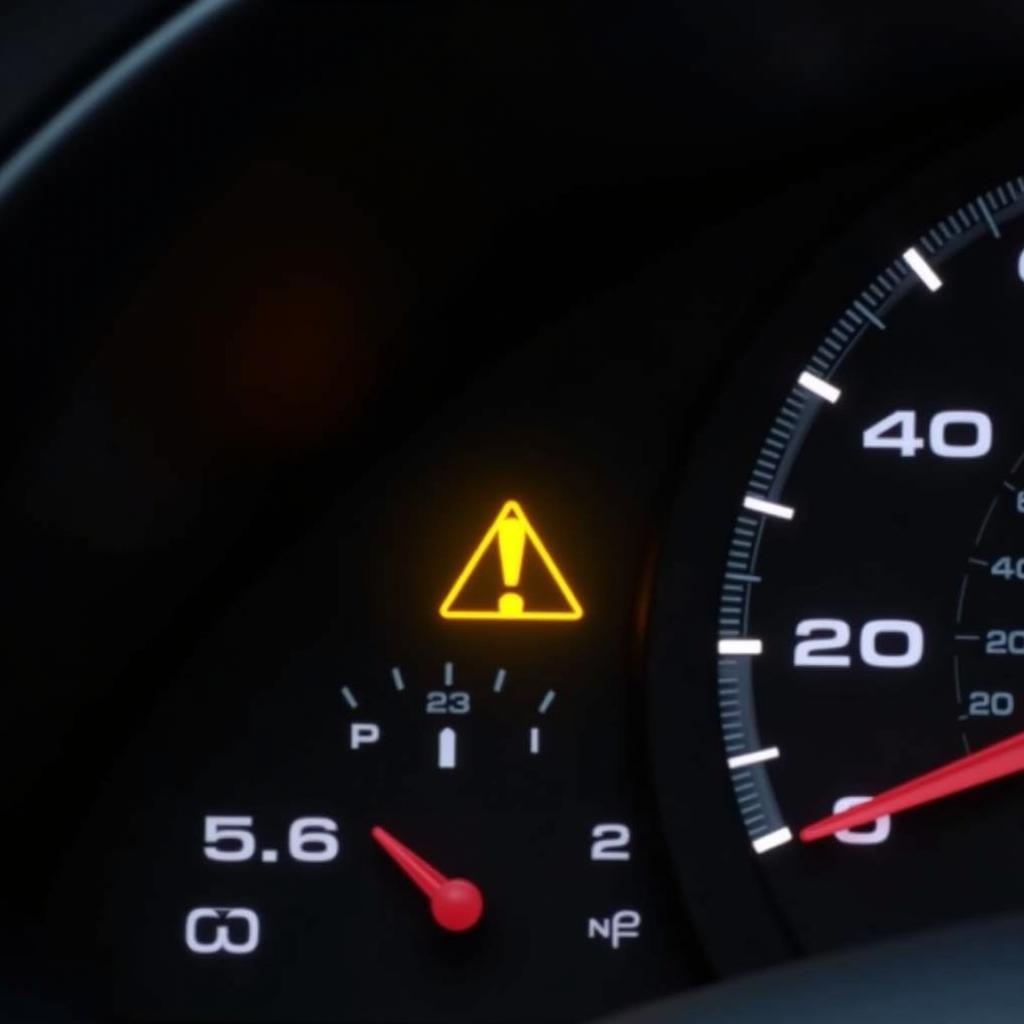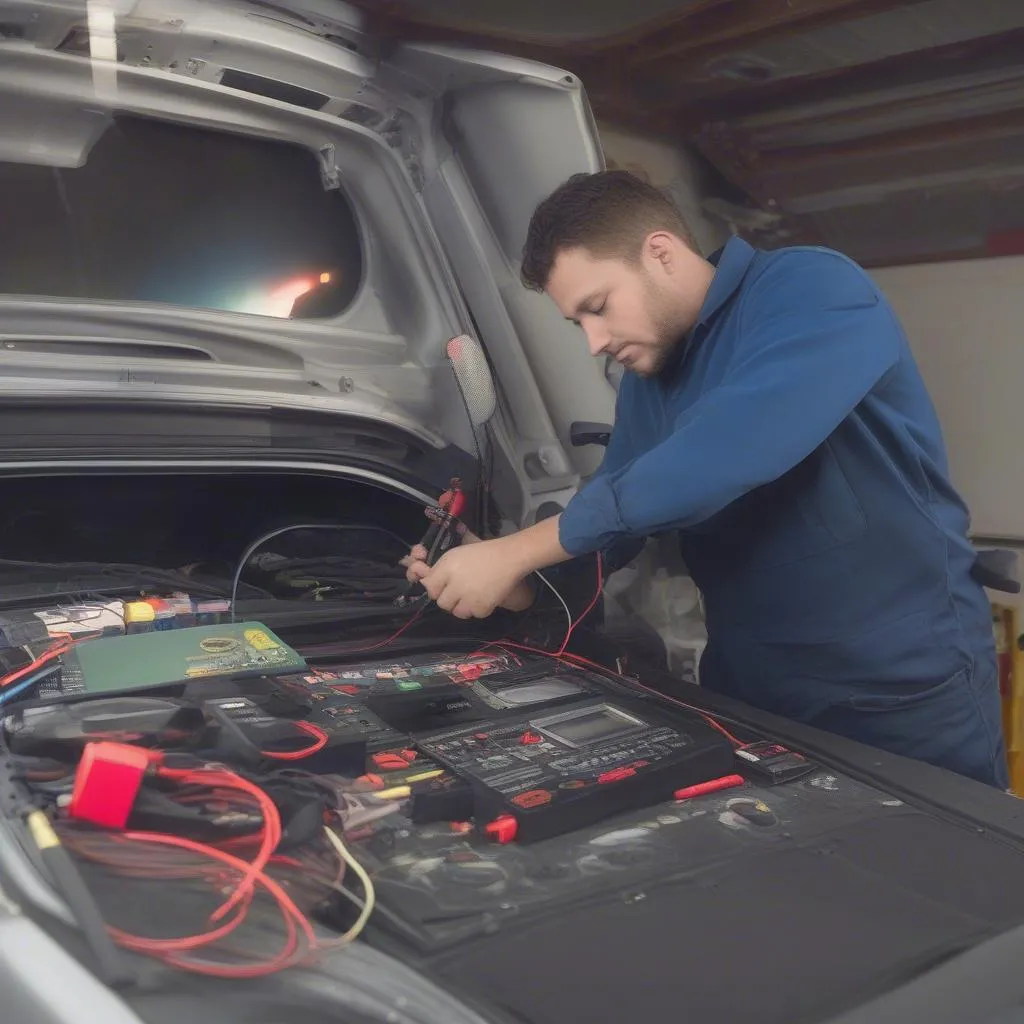My car won’t start and it’s not the battery. This frustrating scenario is more common than you might think. While a dead battery is often the culprit, there are several other reasons why your car might refuse to turn over. This article will delve into the most common causes and provide you with some potential solutions to get you back on the road.
Similar to a car battery run down, other issues can also prevent your car from starting. Let’s explore some of the possibilities.
Common Culprits When Your Car Won’t Start (Even with a Good Battery)
Several components work together to start your car. A problem with any of these can prevent the engine from cranking. Here’s a breakdown of the usual suspects:
- Starter Motor Issues: The starter motor is responsible for cranking the engine. If it’s failing, you might hear a clicking sound when you turn the key, or nothing at all.
- Faulty Ignition Switch: The ignition switch sends power to various components when you turn the key. A faulty switch can prevent the starter from receiving the necessary power.
- Fuel System Problems: Even with a charged battery and a working starter, your engine needs fuel. A clogged fuel filter, a malfunctioning fuel pump, or a faulty fuel injector can prevent fuel from reaching the engine.
- Sensor Malfunctions: Modern cars rely on various sensors to operate. A faulty crankshaft position sensor or camshaft position sensor can disrupt the engine’s timing and prevent it from starting.
- Alternator Issues: While a bad alternator won’t directly prevent your car from starting if the battery has some charge, a failing alternator could have drained the battery overnight, masking the real problem.
- Wiring Problems: Corroded or damaged wiring can disrupt the flow of electricity to essential components, preventing the car from starting.
- Immobilizer System: Modern cars often have an immobilizer system that prevents theft. If this system malfunctions, it may prevent the car from starting.
Diagnosing the Problem When My Car Won’t Start and It’s Not the Battery
Pinpointing the exact cause can require some investigative work. Here’s a step-by-step guide to help you diagnose the issue:
- Check the Dashboard Warning Lights: Pay attention to any warning lights illuminated on your dashboard. These can provide valuable clues about the underlying problem.
- Listen for Unusual Sounds: When you try to start the car, listen for any clicking, grinding, or whirring sounds. These sounds can indicate a problem with the starter motor, solenoid, or other components.
- Test the Starter Motor: Using a multimeter or a test light, you can check if the starter motor is receiving power when you turn the key.
- Inspect the Fuel System: Check the fuel pressure and ensure that fuel is reaching the engine.
- Check the Ignition System: Examine the ignition switch, spark plugs, and ignition coils for any signs of damage or wear.
What if I’ve Tried Everything and My Car Still Won’t Start?
If you’ve exhausted all the basic troubleshooting steps and your car still won’t start, it’s time to seek professional help. A qualified mechanic can use advanced diagnostic tools to identify the underlying problem and recommend the necessary repairs. In some cases, remote diagnostics and software installations might offer a solution.
This situation can be similar to experiencing a my car battery died for no reason scenario, where the underlying issue is not immediately apparent.
Remote Diagnostics and Software Solutions
As a specialist in automotive electrical engineering, I often leverage remote diagnostic and programming services to resolve complex car issues. This technology allows me to analyze vehicle data remotely, identify software glitches, and even install software updates wirelessly. This can be particularly helpful in addressing problems related to the car’s electronic control unit (ECU), immobilizer systems, and other software-controlled components. If you suspect a software-related issue might be preventing your car from starting, consider contacting a specialist in remote diagnostics.
If you’ve ever wondered, “will a car battery die if not used,” you’ll find valuable information in this linked article.
Conclusion
When your car won’t start and it’s not the battery, the problem can range from a simple faulty connection to a more complex issue with the car’s computer systems. By systematically checking the common culprits and utilizing available resources like remote diagnostics, you can often identify the root cause and get your car back on the road. Don’t hesitate to seek professional help if your troubleshooting efforts are unsuccessful.
FAQs
- Could a bad alternator eventually prevent a car from starting? Yes, a failing alternator will eventually drain the battery, leading to a no-start condition.
- What does a clicking sound when trying to start the car indicate? A clicking sound often suggests a problem with the starter motor or the solenoid.
- Can a faulty fuel pump prevent the car from starting? Yes, a malfunctioning fuel pump can prevent fuel from reaching the engine, leading to a no-start condition.
- How can remote diagnostics help when my car won’t start? Remote diagnostics can identify software glitches or communication errors that might be preventing the car from starting.
- What are some signs of a faulty ignition switch? A faulty ignition switch might cause flickering dashboard lights, difficulty turning the key, or a complete inability to start the car.
- Why is it important to check the dashboard warning lights? Dashboard warning lights can provide valuable clues about the underlying cause of the starting problem.
- When should I seek professional help for a car that won’t start? If basic troubleshooting steps are unsuccessful, it’s best to consult a qualified mechanic. It’s also relevant to consider whether a remote car starter draining battery might be the cause. You may also want to explore how to diagnose battery drain in car.



